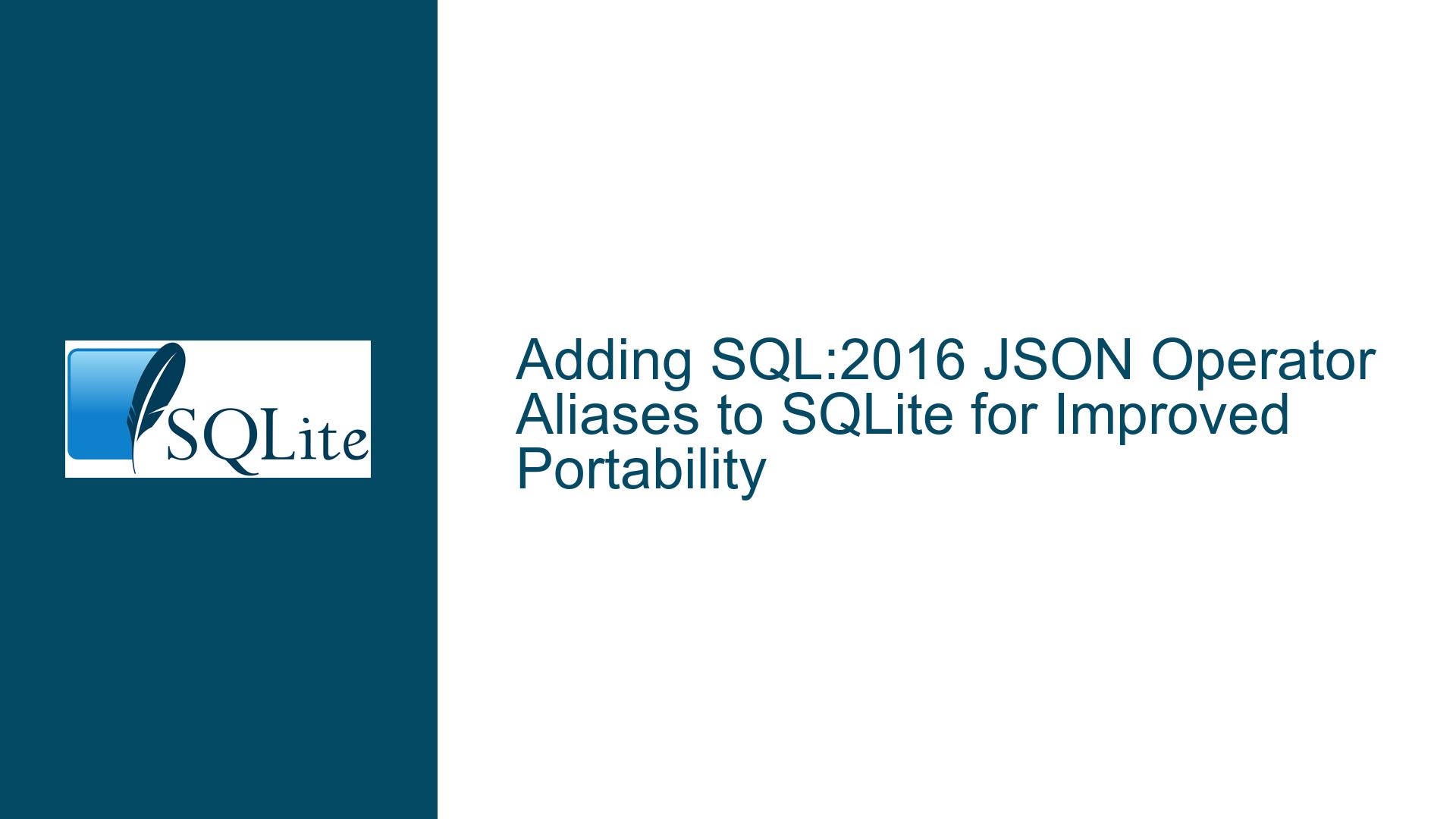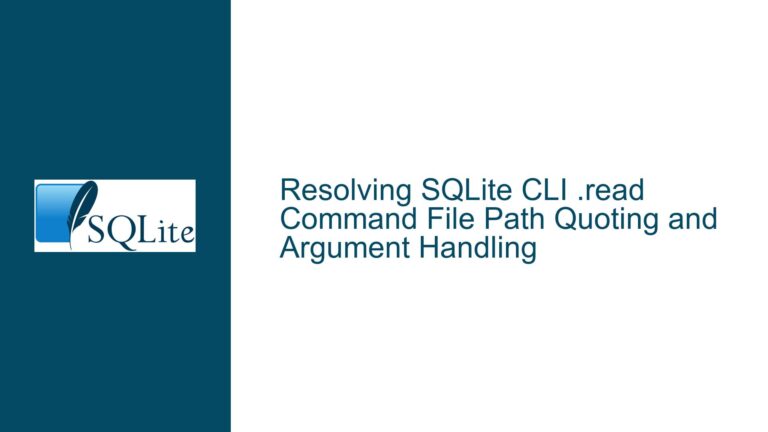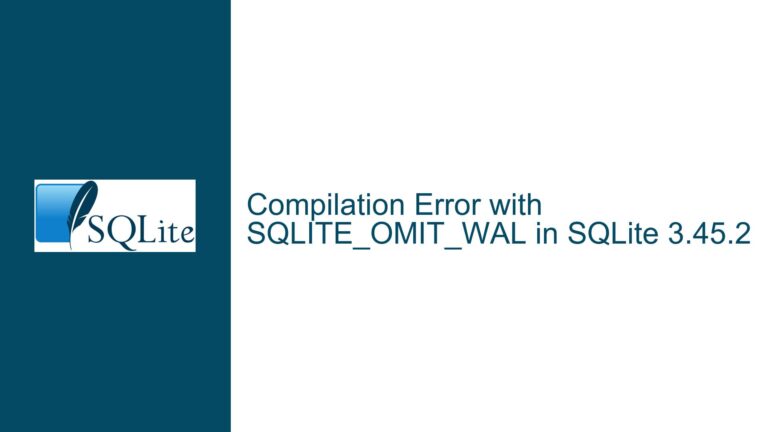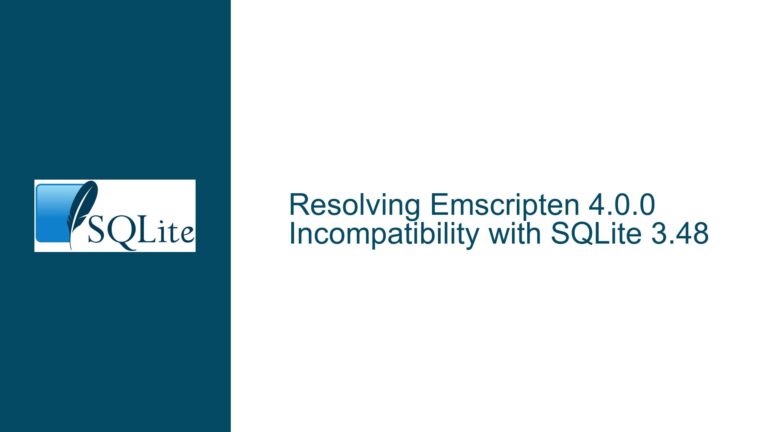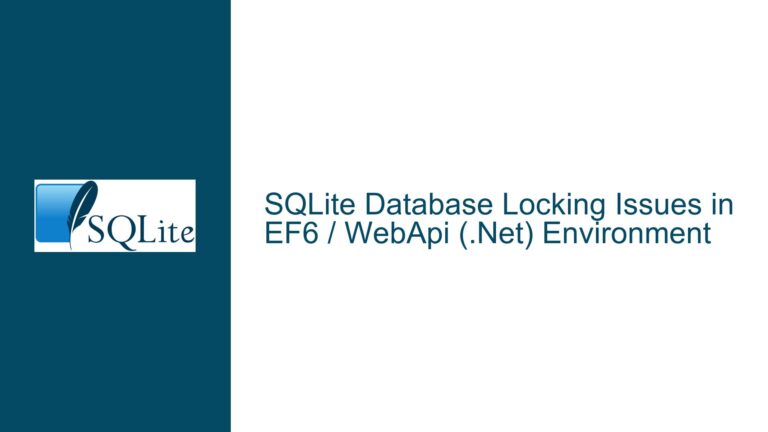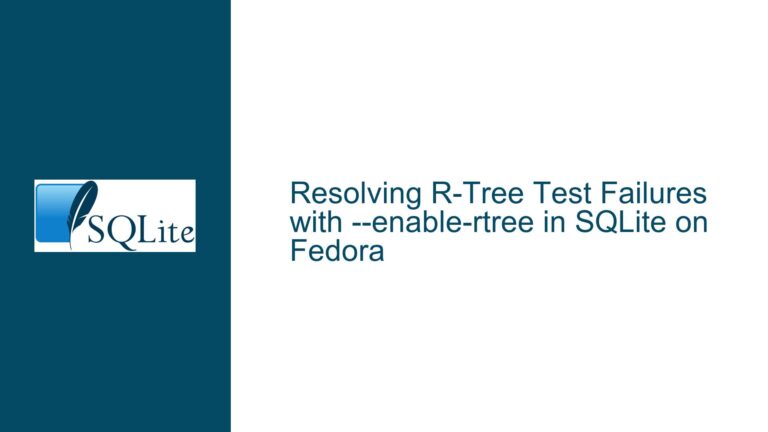Adding SQL:2016 JSON Operator Aliases to SQLite for Improved Portability
JSON Operator Aliases and SQL:2016 Standard Compliance in SQLite
Issue Overview
The core issue revolves around the lack of SQL:2016 standard JSON operator support in SQLite, which creates challenges for developers seeking to write portable SQL code across different database systems. SQLite currently implements its own set of JSON functions, such as json_group_array(), json_group_object(), json_tree(), json_each(), and json_extract(). These functions, while powerful and functional, do not align with the SQL:2016 standard JSON operators, which are increasingly being adopted by other major database systems like PostgreSQL, MySQL, and Oracle. This misalignment can lead to compatibility issues, especially for developers using tools like ORMs (Object-Relational Mappers) or query builders that dynamically generate SQL code.
The SQL:2016 standard introduces a unified set of JSON operators, including json_arrayagg(), json_objectagg(), json_table(), and json_query(). These operators are designed to provide a consistent interface for working with JSON data across different database systems. By not supporting these standard operators, SQLite risks becoming an outlier in the database ecosystem, potentially limiting its adoption in environments where cross-database compatibility is a priority.
The proposal to add aliases for SQLite’s existing JSON functions to match the SQL:2016 standard operators is a pragmatic solution to this problem. For example, json_group_array() could be aliased as json_arrayagg(), json_group_object() as json_objectagg(), and so on. This approach would allow SQLite to maintain its existing functionality while also providing a standardized interface for developers who need to write portable SQL code.
However, implementing these aliases is not without its challenges. The SQLite development team would need to carefully consider the implications of adding these aliases, including potential conflicts with existing code, the impact on performance, and the complexity of the implementation. Additionally, there may be differences in the behavior of SQLite’s JSON functions and the SQL:2016 standard operators that would need to be addressed to ensure that the aliases provide a true drop-in replacement.
Possible Causes
The lack of SQL:2016 standard JSON operator support in SQLite can be attributed to several factors. First, SQLite has historically prioritized simplicity and minimalism over strict adherence to SQL standards. This philosophy has allowed SQLite to remain lightweight and easy to embed in applications, but it has also meant that the database has sometimes lagged behind in adopting newer SQL standards. In the case of JSON support, SQLite introduced its own set of JSON functions before the SQL:2016 standard was finalized, and there has been little incentive to update these functions to match the standard.
Another factor is the relatively slow adoption of the SQL:2016 standard by other database systems. While PostgreSQL, MySQL, and Oracle have all added support for the SQL:2016 JSON operators, these additions have been relatively recent, and not all database systems have fully implemented the standard. This slow adoption has likely contributed to SQLite’s lack of urgency in adding support for these operators.
Finally, the SQLite development team may have concerns about the complexity and performance implications of adding aliases for the SQL:2016 JSON operators. SQLite’s JSON functions are highly optimized for performance, and any changes to these functions could potentially introduce performance regressions. Additionally, adding aliases for these functions could increase the complexity of the SQLite codebase, making it more difficult to maintain and debug.
Troubleshooting Steps, Solutions & Fixes
To address the issue of SQL:2016 JSON operator support in SQLite, several steps can be taken. The first step is to evaluate the feasibility of adding aliases for SQLite’s existing JSON functions to match the SQL:2016 standard operators. This evaluation should include an analysis of the potential impact on performance, the complexity of the implementation, and the potential for conflicts with existing code.
If the evaluation determines that adding aliases is feasible, the next step is to implement the aliases in a way that minimizes the impact on performance and maintains compatibility with existing code. This could involve creating lightweight wrapper functions that simply call the existing JSON functions under the hood, rather than reimplementing the functionality from scratch. For example, the json_arrayagg() alias could be implemented as a simple wrapper around the existing json_group_array() function, with no changes to the underlying implementation.
Another important consideration is ensuring that the aliases provide a true drop-in replacement for the SQL:2016 standard operators. This means that the behavior of the aliases should match the behavior of the standard operators as closely as possible, including any edge cases or subtle differences in behavior. If there are significant differences between SQLite’s JSON functions and the SQL:2016 standard operators, these differences should be documented clearly, and developers should be made aware of them.
In addition to adding aliases for the SQL:2016 JSON operators, it may also be beneficial to add support for any JSON functionality that is currently missing from SQLite but is part of the SQL:2016 standard. For example, the json_table() function, which is used to convert JSON data into a relational format, is not currently supported by SQLite. Adding support for this function would further improve SQLite’s compatibility with the SQL:2016 standard and make it easier for developers to work with JSON data in a portable way.
Finally, it is important to engage with the SQLite community and gather feedback on the proposed changes. This feedback can help identify potential issues or concerns that may not have been considered during the initial evaluation and implementation phases. It can also help ensure that the changes are well-received by the community and that they meet the needs of developers who rely on SQLite for their applications.
In conclusion, adding aliases for SQLite’s existing JSON functions to match the SQL:2016 standard operators is a practical solution to the issue of cross-database compatibility. By carefully evaluating the feasibility of these changes, implementing them in a way that minimizes impact on performance and compatibility, and engaging with the SQLite community, it is possible to improve SQLite’s support for the SQL:2016 standard and make it easier for developers to write portable SQL code.
